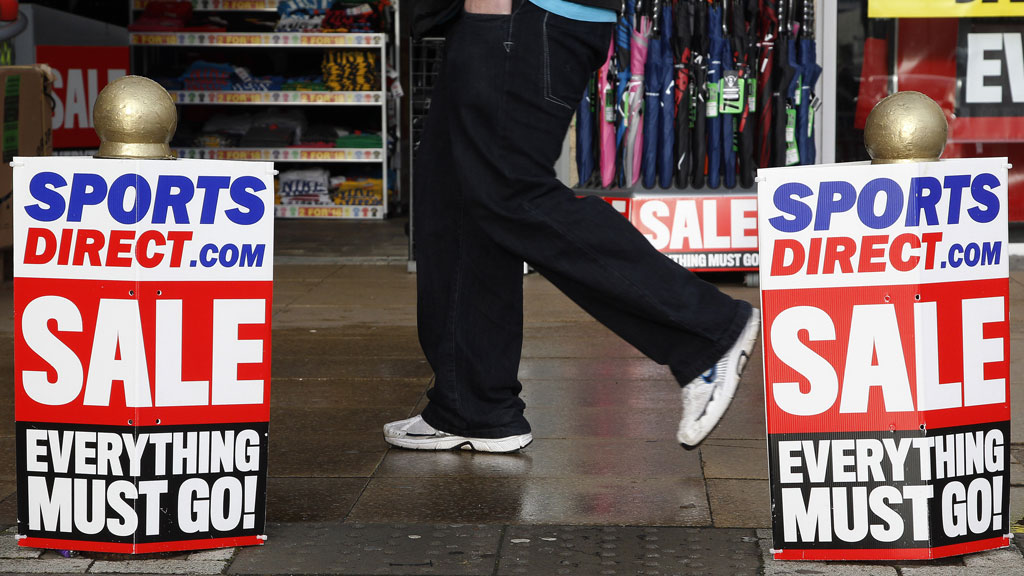Sports Direct: the great shares giveaway
Sports Direct International is rewarding some of its staff with bonuses worth tens of thousands of pounds after a 40 per cent rise in profits. What is the secret of its success?

The company has made £207m in pre-tax profits – aided by the London Olympics effect and the collapse of rival JJB Sports – and 2,000 employees are set to benefit to the tune of £130m.
Only permanent staff qualify for the shares giveway; most of the 24,000 people employed by the company are on flexible contracts and will receive nothing.
A manager earning £20,000 in 2009 who is still working for Sports Direct will be given 12,000 shares in August, worth £77,000, that can be sold immediately.
Depending on when this manager joined the company, s/he could also have picked up 5,000 shares in 2012, worth £17,000 at the time and double this now.
These rich pickings, for Sports Direct’s lucky few, are the result of the 2009 employee bonus share scheme.
A 2011 scheme that involves 3,000 members of staff will mean further payouts in 2015 and 2017 assuming financial targets are met. This bonus culture has made it easier to retain staff.
Sports Direct was founded by Newcastle United owner Mike Ashley, who had been in line for a £26m bonus – until the company decided on Thursday to scrap the scheme that would have seen him so generously rewarded. Its future plans for Mr Ashley remain to be decided.
Buy big, sell cheap
The company’s business model is straightforward: buy in big quantities and sell as cheaply as possible.
Another advantage is Sports Direct’s ownership of many of the brands it sells, including Slazenger, Dunlop, Karrimor and Lonsdale, which keeps a lid on costs.
The firm says its success in selling the brands it owns means it can offer discounts on other brands. A rise in online sales from 11 to 15 per is another factor.
So will profits continue to rise? Sports Direct is cautious, saying it may be tougher to maintain its sales performance in 2013-14 in the absence of sporting tournaments.